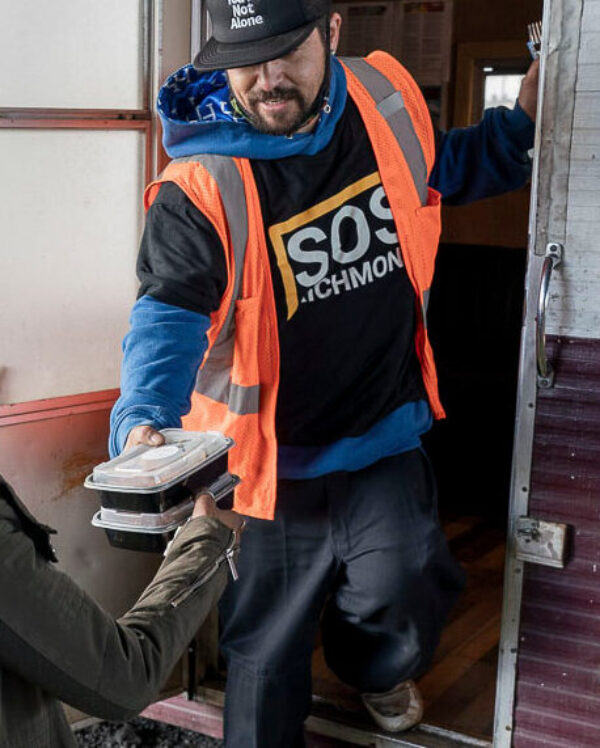When single mother Angelina lost her family’s place, she sent her children to live with their father and, with nowhere else to go, was forced to live on the streets. Her experience of homelessness over the following year and a half now empowers a dedication to helping others going through similar challenges.
The Journey Home Begins with Community
Angelina shares her story of resilience and commitment to helping others transition from homelessness to stable housing.
As Care Manager for SOS Richmond, Angelina serves clients living in transitionary shelters, providing the support and resources they need to move forward. She builds connections and earns trust with unhoused individuals, strengthening the relationships between these members of our community and the solutions that can change their lives.
Having lived on the streets alongside some of her clients, Angelina can foster comfort and safety as a direct service provider. That’s because she remembers what it was like to lack basic necessities and understands the impact a simple shower can have on a person’s day. She finds it fulfilling to support people on their journey to stability, even as she navigates the ongoing challenges of her own secure future.

Peer Accompaniment is a behavioral health and homelessness solution using trained peer workers to provide additional services and support. It is effective in improving overall housing and treatment outcomes when paired a recovery-oriented, trauma-informed organization.
“I don’t judge anyone…because we’ve all been through similar struggles, just different stories.”
Angelina’s resilience is empowering others to believe in a future where everyone can live with dignity and belonging. She reminds us that when we come together and see ourselves as part of one human story, we can create a brighter future for all of us.
This story was told in collaboration with SOS Richmond, an organization with current and former unhoused individuals and their allies on staff working together to improve our neighborhoods through vital community relationships. Their earned connection with the unhoused communities aids public agencies and improves safety and stability for all.